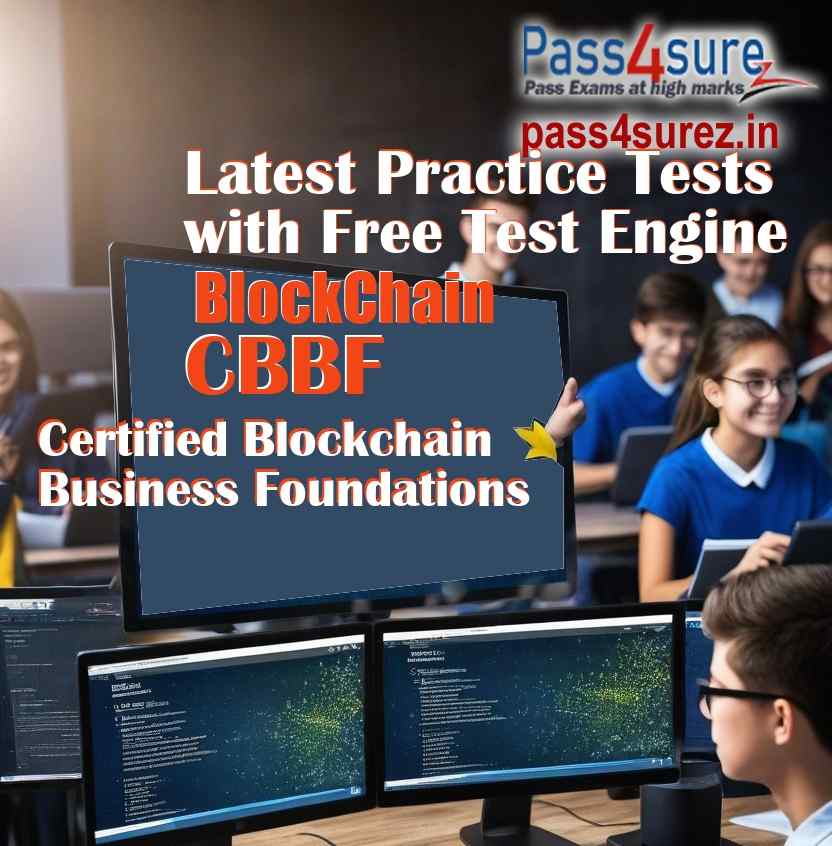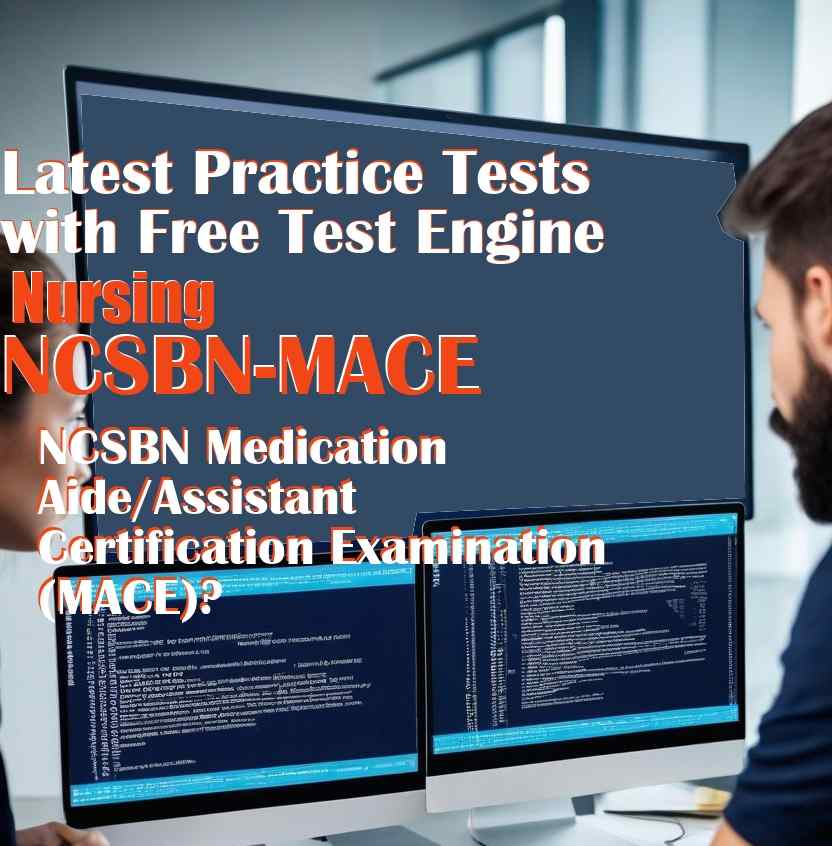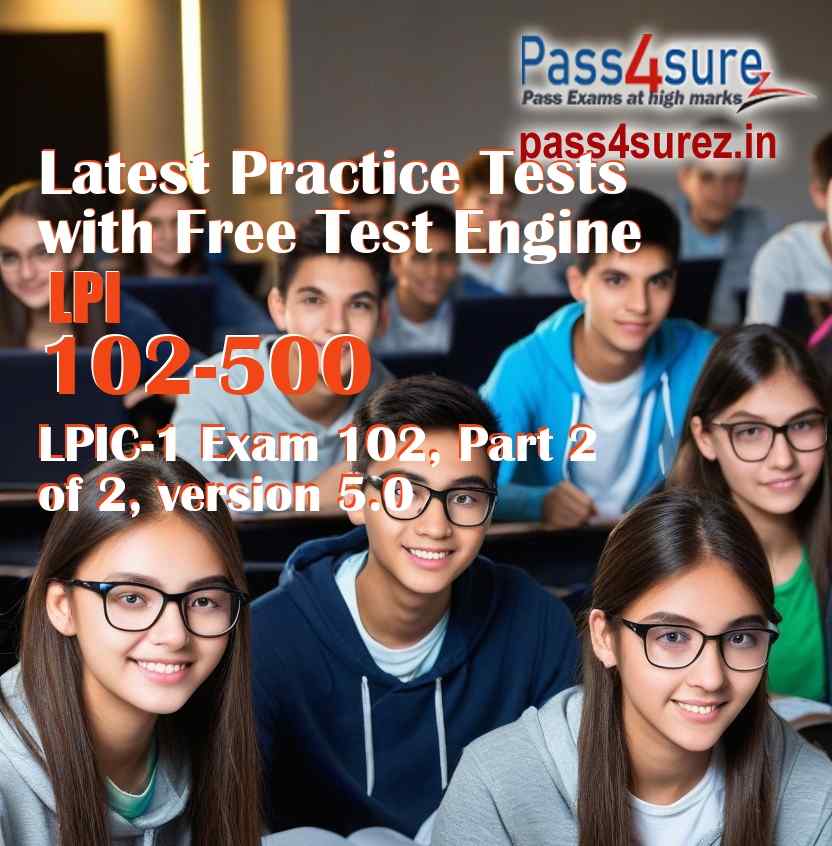| Exam Code | 102-500 |
| Questions and Answers | 162 |
| Premium Access | Yes |
| Online Test Engine | Yes |
| Comprehensive Q&A | Yes |
| Success Rate | 98% |
| Real Questions | Yes |
| Updated Regularly | Yes |
| Portable Files | ✔ |
| Unlimited Download | ✔ |
| 100% Secured | ✔ |
| Confidentiality | 100% |
| Success Guarantee | 100% |
| Any Hidden Cost | $0.00 |
| Auto Recharge | No |
| Updates Intimation | by Email |
| Technical Support | Free |
| PDF Compatibility | Windows, Android, iOS, Linux |
| Test Engine Compatibility | Mac/Windows/Android/iOS/Linux |
| Sample Questions |  |
Pass4sure Practice Tests are an effective way to prepare for the 102-500 exam. The practice tests include premium PDF and Test Engine Software. Pass4surez.in provides an extensive question bank to improve your knowledge and help you achieve high marks on the 102-500 exam.
The LPIC-1 Exam 102, Part 2 of 2, version 5.0 exam questions and answers on Pass4surez.in are regularly verified and updated to ensure they reflect the latest syllabus and topics covered in the real test. The certification exams and entry test exams from pass4surez.com make you familiar with the test environment. The goal is to enhance your knowledge of the 102-500 exam and enable you to pass it on your first attempt.
The PDF of 102-500 exam questions and answers provided by Pass4surez.in contains a comprehensive pool of questions and verified answers, including references and explanations where applicable. The objective is not only to help you pass the exam, but also to significantly improve your knowledge of the latest 102-500 course topics.
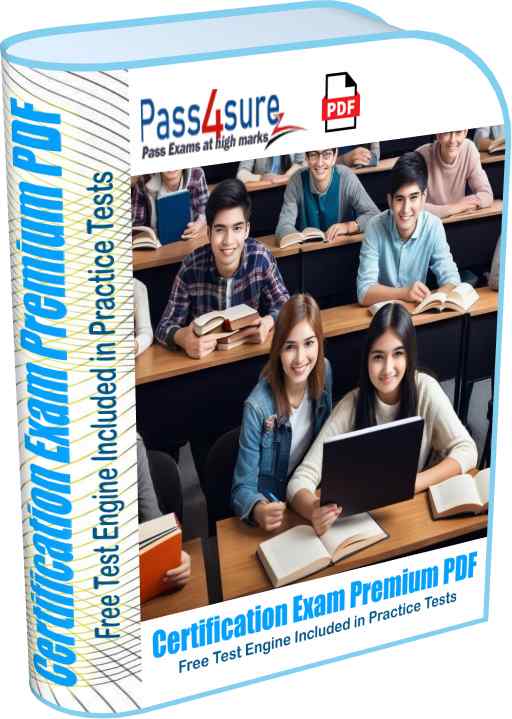 |
|
CERTIFICATION EXAM PREMIUM PDF
Pass4Sure provide premium PDF that contains all the questions and answers that are necessary to make your concepts about the exam topics clear and boost your knowledge about the exam. These questions and answers make you ready to face actual test in test centers. Our team keep on revising material and update the exam questions accordingly. You will feel confident in test center. Our support team keep on helping our customers to make their testing experience best. Our premium PDF files are searchable, convertable and printable at high quality to make book that you can study during traveling or during vacations. Our automated system sends intimation email to our customers on each update. The files in customer download section is overwritten with latest pdf files.
|
| |
|
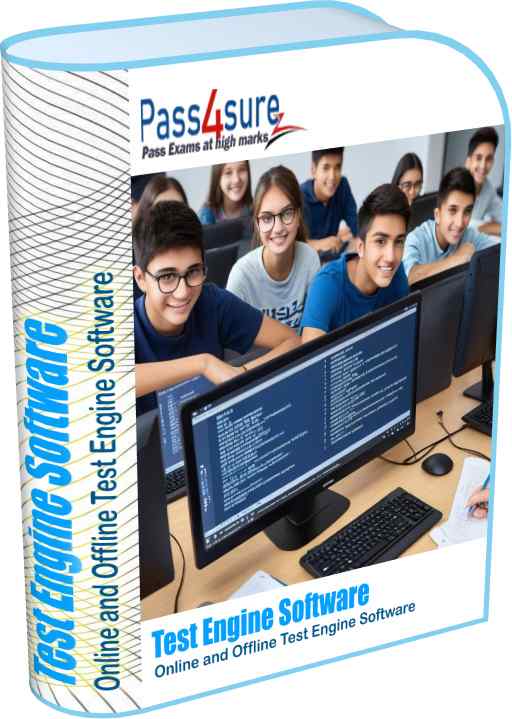 |
|
CERTIFICATION EXAM TEST ENGINE
Pass4sure test engine is best certification and examination preparation tool that help you make yourself ready to take the actual exam and get high marks in the exam. Our OTE (Online Test Engine) support all OS Platforms including iOS, Android, Windows, Linux, Chromebook etc and provide up to date experience to get ready for actual test. Our Offline Test Engine is compatible to all windows platforms including latest windows versions. Our test engines helps to familiarize actual test environment and makes you ready to take timed tests. Your performance history and graphs helps you to see when you are ready to sit in actual exam in test center. These test engines uses up to date and latest questions and answers, keeps on updating the questions pool and sends you intimation on each update.
|
Pass4sure Premium PDF and Test Engines support all platforms and devices including mobile devices and computers. You should download sample PDF and Test Engine to evaluate the product before you buy the full version. Our exam samples include some questions that may be or may not be up to date but full version is always up to date.
Exam Title :
LPIC-1 Linux Administrator
Exam ID :
102-500
Exam Duration :
90 mins
Questions in Exam :
60
Passing Score :
500 / 800
Exam Center :
LPI Marketplace
Real Questions :
LPI LPIC-1 Real Questions
VCE Practice Test :
LPI 102-500 Certification VCE Practice Test
Topic
Details
Topic 105: Shells and Shell Scripting
105.1 Customize and use the shell environment
Weight: 4
Description: Candidates should be able to customize shell environments to meet users' needs. Candidates should be able to modify global and user profiles.
Key Knowledge Areas:
- Set environment variables (e.g. PATH) at login or when spawning a new shell.
- Write Bash functions for frequently used sequences of commands.
- Maintain skeleton directories for new user accounts.
- Set command search path with the proper directory.
The following is a partial list of the used files, terms and utilities:
- .
- source
- /etc/bash.bashrc
- /etc/profile
- env
- export
- set
- unset
- ~/.bash_profile
- ~/.bash_login
- ~/.profile
- ~/.bashrc
- ~/.bash_logout
- function
- alias
105.2 Customize or write simple scripts
Weight: 4
Description: Candidates should be able to customize existing scripts, or write simple new Bash scripts.
Key Knowledge Areas:
- Use standard sh syntax (loops, tests).
- Use command substitution.
- Test return values for success or failure or other information provided by a command.
- Execute chained commands.
- Perform conditional mailing to the superuser.
- Correctly select the script interpreter through the shebang (#!) line.
- Manage the location, ownership, execution and suid-rights of scripts.
The following is a partial list of the used files, terms and utilities:
- for
- while
- test
- if
- read
- seq
- exec
- ||
- &&
Topic 106: User Interfaces and Desktops
106.1 Install and configure X11
Weight: 2
Description: Candidates should be able to install and configure X11.
Key Knowledge Areas:
- Understanding of the X11 architecture.
- Basic understanding and knowledge of the X Window configuration file.
- Overwrite specific aspects of Xorg configuration, such as keyboard layout.
- Understand the components of desktop environments, such as display managers and window managers.
- Manage access to the X server and display applications on remote X servers.
- Awareness of Wayland.
The following is a partial list of the used files, terms and utilities:
- /etc/X11/xorg.conf
- /etc/X11/xorg.conf.d/
- ~/.xsession-errors
- xhost
- xauth
- DISPLAY
- X
106.2 Graphical Desktops
Weight: 1
Description: Candidates should be aware of major Linux desktops. Furthermore, candidates should be aware of protocols used to access remote desktop sessions.
Key Knowledge Areas:
- Awareness of major desktop environments
- Awareness of protocols to access remote desktop sessions
The following is a partial list of the used files, terms and utilities:
- KDE
- Gnome
- Xfce
- X11
- XDMCP
- VNC
- Spice
- RDP
106.3 Accessibility
Weight: 1
Description: Demonstrate knowledge and awareness of accessibility technologies.
Key Knowledge Areas:
- Basic knowledge of visual settings and themes.
- Basic knowledge of assistive technology.
The following is a partial list of the used files, terms and utilities:
- High Contrast/Large Print Desktop Themes.
- Screen Reader.
- Braille Display.
- Screen Magnifier.
- On-Screen Keyboard.
- Sticky/Repeat keys.
- Slow/Bounce/Toggle keys.
- Mouse keys.
- Gestures.
- Voice recognition.
Topic 107: Administrative Tasks
107.1 Manage user and group accounts and related system files
Weight: 5
Description: Candidates should be able to add, remove, suspend and change user accounts.
Key Knowledge Areas:
- Add, modify and remove users and groups.
- Manage user/group info in password/group databases.
- Create and manage special purpose and limited accounts.
The following is a partial list of the used files, terms and utilities:
- /etc/passwd
- /etc/shadow
- /etc/group
- /etc/skel/
- chage
- getent
- groupadd
- groupdel
- groupmod
- passwd
- useradd
- userdel
- usermod
107.2 Automate system administration tasks by scheduling jobs
Weight: 4
Description: Candidates should be able to use cron and systemd timers to run jobs at regular intervals and to use at to run jobs at a specific time.
Key Knowledge Areas:
- Manage cron and at jobs.
- Configure user access to cron and at services.
- Understand systemd timer units.
The following is a partial list of the used files, terms and utilities:
- /etc/cron.{d,daily,hourly,monthly,weekly}/
- /etc/at.deny
- /etc/at.allow
- /etc/crontab
- /etc/cron.allow
- /etc/cron.deny
- /var/spool/cron/
- crontab
- at
- atq
- atrm
- systemctl
- systemd-run
107.3 Localisation and internationalisation
Weight: 3
Description: Candidates should be able to localize a system in a different language than English. As well, an understanding of why LANG=C is useful when scripting.
Key Knowledge Areas:
- Configure locale settings and environment variables.
- Configure timezone settings and environment variables.
The following is a partial list of the used files, terms and utilities:
- /etc/timezone
- /etc/localtime
- /usr/share/zoneinfo/
- LC_*
- LC_ALL
- LANG
- TZ
- /usr/bin/locale
- tzselect
- timedatectl
- date
- iconv
- UTF-8
- ISO-8859
- ASCII
- Unicode
Topic 108: Essential System Services
108.1 Maintain system time
Weight: 3
Description: Candidates should be able to properly maintain the system time and synchronize the clock via NTP.
Key Knowledge Areas:
- Set the system date and time.
- Set the hardware clock to the correct time in UTC.
- Configure the correct timezone.
- Basic NTP configuration using ntpd and chrony.
- Knowledge of using the pool.ntp.org service.
- Awareness of the ntpq command.
The following is a partial list of the used files, terms and utilities:
- /usr/share/zoneinfo/
- /etc/timezone
- /etc/localtime
- /etc/ntp.conf
- /etc/chrony.conf
- date
- hwclock
- timedatectl
- ntpd
- ntpdate
- chronyc
- pool.ntp.org
108.2 System logging
Weight: 4
Description: Candidates should be able to configure rsyslog. This objective also includes configuring the logging daemon to send log output to a central log server or accept log output as a central log server. Use of the systemd journal subsystem is covered. Also, awareness of syslog and syslog-ng as alternative logging systems is included.
Key Knowledge Areas:
- Basic configuration of rsyslog.
- Understanding of standard facilities, priorities and actions.
- Query the systemd journal.
- Filter systemd journal data by criteria such as date, service or priority.
- Configure persistent systemd journal storage and journal size.
- Delete old systemd journal data.
- Retrieve systemd journal data from a rescue system or file system copy.
- Understand interaction of rsyslog with systemd-journald.
- Configuration of logrotate.
- Awareness of syslog and syslog-ng.
Terms and Utilities:
- /etc/rsyslog.conf
- /var/log/
- logger
- logrotate
- /etc/logrotate.conf
- /etc/logrotate.d/
- journalctl
- systemd-cat
- /etc/systemd/journald.conf
- /var/log/journal/
108.3 Mail Transfer Agent (MTA) basics
Weight: 3
Description: Candidates should be aware of the commonly available MTA programs and be able to perform basic forward and alias configuration on a client host. Other configuration files are not covered.
Key Knowledge Areas:
- Create e-mail aliases.
- Configure e-mail forwarding.
- Knowledge of commonly available MTA programs (postfix, sendmail, exim) (no configuration).
Terms and Utilities:
- ~/.forward
- sendmail emulation layer commands
- newaliases
- mail
- mailq
- postfix
- sendmail
- exim
108.4 Manage printers and printing
Weight: 2
Description: Candidates should be able to manage print queues and user print jobs using CUPS and the LPD compatibility interface.
Key Knowledge Areas:
- Basic CUPS configuration (for local and remote printers).
- Manage user print queues.
- Troubleshoot general printing problems.
- Add and remove jobs from configured printer queues.
The following is a partial list of the used files, terms and utilities:
- CUPS configuration files, tools and utilities
- /etc/cups/
- lpd legacy interface (lpr, lprm, lpq)
Topic 109: Networking Fundamentals
109.1 Fundamentals of internet protocols
Weight: 4
Description: Candidates should demonstrate a proper understanding of TCP/IP network fundamentals.
Key Knowledge Areas:
- Demonstrate an understanding of network masks and CIDR notation.
- Knowledge of the differences between private and public "dotted quad" IP addresses.
- Knowledge about common TCP and UDP ports and services (20, 21, 22, 23, 25, 53, 80, 110, 123, 139, 143, 161, 162, 389, 443, 465, 514, 636, 993, 995).
- Knowledge about the differences and major features of UDP, TCP and ICMP.
- Knowledge of the major differences between IPv4 and IPv6.
- Knowledge of the basic features of IPv6.
The following is a partial list of the used files, terms and utilities:
- /etc/services
- IPv4, IPv6
- Subnetting
- TCP, UDP, ICMP
109.2 Persistent network configuration
Weight: 4
Description: Candidates should be able to manage the persistent network configuration of a Linux host.
Key Knowledge Areas:
- Understand basic TCP/IP host configuration.
- Configure ethernet and wi-fi network using NetworkManager.
- Awareness of systemd-networkd.
The following is a partial list of the used files, terms and utilities:
- /etc/hostname
- /etc/hosts
- /etc/nsswitch.conf
- /etc/resolv.conf
- nmcli
- hostnamectl
- ifup
- ifdown
109.3 Basic network troubleshooting
Weight: 4
Description: Candidates should be able to troubleshoot networking issues on client hosts.
Key Knowledge Areas:
- Manually configure network interfaces, including viewing and changing the configuration of network interfaces using iproute2.
- Manually configure routing, including viewing and changing routing tables and setting the default route using iproute2.
- Debug problems associated with the network configuration.
The following is a partial list of the used files, terms and utilities:
- ip
- hostname
- ss
- ping
- ping6
- traceroute
- traceroute6
- tracepath
- tracepath6
- netcat
- ifconfig
- netstat
- route
109.4 Configure client side DNS
Weight: 2
Description: Candidates should be able to configure DNS on a client host.
Key Knowledge Areas:
- Query remote DNS servers.
- Configure local name resolution and use remote DNS servers.
- Modify the order in which name resolution is done.
- Debug errors related to name resolution.
- Awareness of systemd-resolved.
The following is a partial list of the used files, terms and utilities:
- /etc/hosts
- /etc/resolv.conf
- /etc/nsswitch.conf
- host
- dig
- getent
Topic 110: Security
110.1 Perform security administration tasks
Weight: 3
Description: Candidates should know how to review system configuration to ensure host security in accordance with local security policies.
Key Knowledge Areas:
- Audit a system to find files with the suid/sgid bit set.
- Set or change user passwords and password aging information.
- Being able to use nmap and netstat to discover open ports on a system.
- Set up limits on user logins, processes and memory usage.
- Determine which users have logged in to the system or are currently logged in.
- Basic sudo configuration and usage.
The following is a partial list of the used files, terms and utilities:
- find
- passwd
- fuser
- lsof
- nmap
- chage
- netstat
- sudo
-/etc/sudoers
- su
- usermod
- ulimit
- who, w, last
110.2 Setup host security
Weight: 3
Description: Candidates should know how to set up a basic level of host security.
Key Knowledge Areas:
- Awareness of shadow passwords and how they work.
- Turn off network services not in use.
- Understand the role of TCP wrappers.
The following is a partial list of the used files, terms and utilities:
- /etc/nologin
- /etc/passwd
- /etc/shadow
- /etc/xinetd.d/
- /etc/xinetd.conf
- systemd.socket
- /etc/inittab
- /etc/init.d/
- /etc/hosts.allow
- /etc/hosts.deny
110.3 Securing data with encryption
Weight: 4
Description: The candidate should be able to use public key techniques to secure data and communication.
Key Knowledge Areas:
- Perform basic OpenSSH 2 client configuration and usage.
- Understand the role of OpenSSH 2 server host keys.
- Perform basic GnuPG configuration, usage and revocation.
- Use GPG to encrypt, decrypt, sign and verify files.
- Understand SSH port tunnels (including X11 tunnels).
The following is a partial list of the used files, terms and utilities:
- ssh
- ssh-keygen
- ssh-agent
- ssh-add
- ~/.ssh/id_rsa and id_rsa.pub
- ~/.ssh/id_dsa and id_dsa.pub
- ~/.ssh/id_ecdsa and id_ecdsa.pub
- ~/.ssh/id_ed25519 and id_ed25519.pub
- /etc/ssh/ssh_host_rsa_key and ssh_host_rsa_key.pub
- /etc/ssh/ssh_host_dsa_key and ssh_host_dsa_key.pub
- /etc/ssh/ssh_host_ecdsa_key and ssh_host_ecdsa_key.pub
- /etc/ssh/ssh_host_ed25519_key and ssh_host_ed25519_key.pub
- ~/.ssh/authorized_keys
- ssh_known_hosts
- gpg
- gpg-agent
- ~/.gnupg/
You can download a free PDF of the 102-500 practice test and study guide to try before purchasing the premium files. To ace the exam, simply download the 102-500 exam questions and answers file, memorize the content, and practice with the VCE Exam Simulator. This will ensure you are fully prepared for the real test.
The 102-500 PDF practice test and exam questions and answers can be accessed on any device, including iPhone, iPad, Android, and Windows. You can download the PDF to your computer or any other device and start studying. Additionally, you can download and install the VCE Exam Simulator for further practice. The 102-500 PDF is printable in high quality, allowing you to take it with you on vacations or while traveling. Your updated 102-500 exam files can be accessed anytime from your online account, and you will receive your login credentials immediately after purchase.
